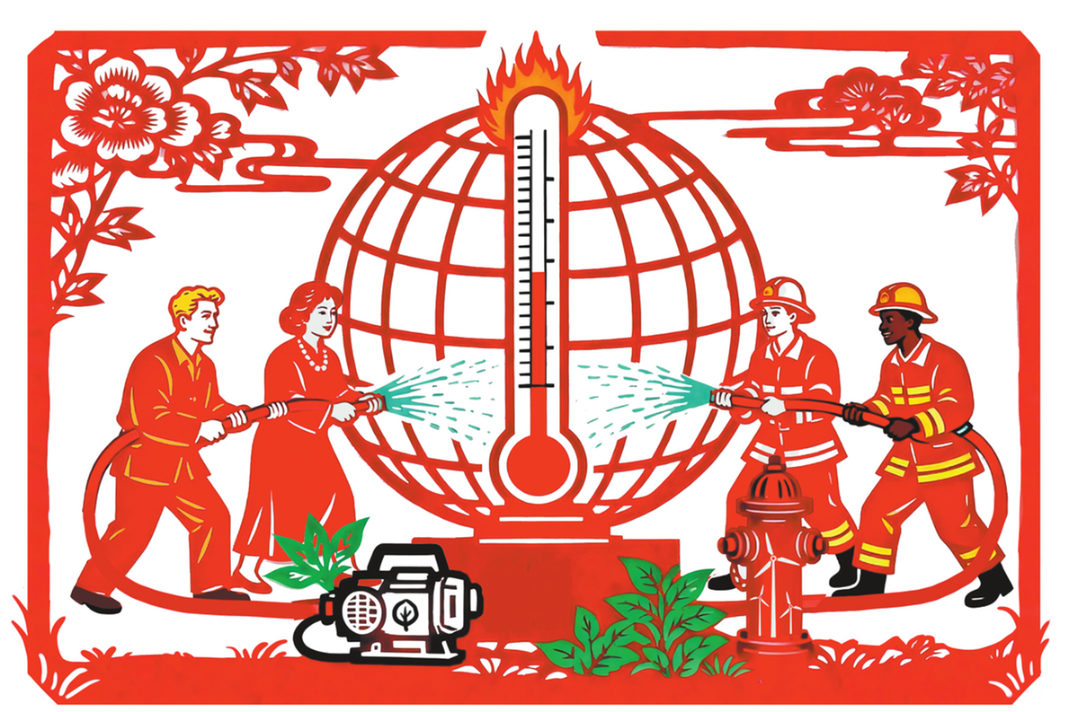China's Arms Control, Disarmament, and Nonproliferation in the New Era
The State Council Information Office of the People's Republic of China November 2025

4. Chemical Weapons
The Chemical Weapons Convention (CWC) [The full name is: the Convention on the Prohibition of the Development, Production, Stockpiling and Use of Chemical Weapons and on Their Destruction.] has played an important role in safeguarding international and regional peace and security and promoting peaceful uses of chemistry. Currently, abandoned and old chemical weapons and other outstanding problems from the past remain; hotspot issues related to chemical weapons persist and are hard to resolve; and the convergence of emerging technologies such as AI and security concerns involving dual-use chemicals are becoming increasingly prominent. Peaceful uses of chemistry are yet to be fully ensured. China has always upheld the authority and effectiveness of the CWC, strictly fulfills its international obligations, and engages thoroughly in the work of the Organisation for the Prohibition of Chemical Weapons (OPCW). It joins forces with others to build a world free of chemical weapons, and helps to ensure that progress in chemistry is used solely for the benefit of humanity.
Fulfilling its obligations under the CWC. As an original contracting state party to the CWC, China has put in place a nationwide and effectively managed implementation system by actively improving legislation on national implementation and establishing an inter-ministerial joint meeting mechanism for implementation. It has submitted declarations in a timely manner, has maintained more declared industrial facilities, and received more OPCW inspections than any other state party. By the end of 2024, it had received a total of 701 on-site inspections, 508 of which were of civilian industrial facilities, making it the first state party to receive more than 500 civilian industrial facility inspections. In April 2023, China submitted the Position Paper of the People's Republic of China on Industry Verification to the Fifth Review Conference of the CWC, to promote the establishment of a global implementation governance system that is better structured, more reasonable and more efficient.
Addressing hotspot chemical weapon issues in accordance with the CWC. China resolutely opposes the use of chemical weapons by any country, any organization, or any individual under any circumstances. It supports comprehensive, objective and impartial investigation — in accordance with the CWC — into incidents which may involve the use of chemical weapons, to reach conclusions which respect facts and will withstand the test of time. It opposes political manipulations using hotspot issues related to chemical weapons as a pretext, and any attempts to start things anew circumventing the investigation mechanism of the CWC.
Promoting international cooperation on peaceful uses of chemistry. In recent years, together with the Non-Aligned Movement, China has pushed for the adoption of multiple decisions by the OPCW on promoting international cooperation on peaceful uses. In May 2023, China and 14 other state parties jointly submitted to the Fifth Review Conference of the CWC a working paper on Promoting International Cooperation on Peaceful Uses Under the Framework of the CWC. The paper presents proposals on strengthening the peaceful uses of chemistry and removing excessive restrictions on developing countries' use of chemical materials, technologies and equipment for peaceful purposes.
Together with the OPCW, China has hosted several events, including regional meetings of national authorities in Asia, symposiums on regional implementation, inspectors training sessions, an international workshop on AI and chemical safety and security management, and an advanced training session on comprehensive international management of chemicals, in order to reinforce implementation capacities of state parties.
Urging Japan to thoroughly destroy the chemical weapons it abandoned in China. During World War II, in flagrant violation of international law, invading Japanese troops used chemical weapons on a large scale in China. A total of 1,791 instances of chemical weapon use have been documented with confirmed dates, locations, and casualty records. The resulting casualties exceeded 200,000. After its defeat, Japan abandoned a large quantity of chemical weapons in China to cover up its crimes. Since the end of World War II, these abandoned chemical weapons have resulted in more than 2,000 poisoning casualties, gravely endangered the lives and property of the Chinese people as well as the environment.
The CWC clearly stipulates that a state party which has abandoned chemical weapons on the territory of another state party shall provide all necessary financial, technical, expert, facility as well as other resources for the purpose of destroying these weapons. After the CWC entered into force, the governments of China and Japan signed two memorandums, in 1999 and 2012, on destroying the chemical weapons abandoned by Japan, to advance the destruction process. However, due to insufficient attention and input from the Japanese side, the destruction plan has missed four deadlines. To date, the Japanese side has not yet provided comprehensive, detailed and accurate information on the whereabouts of its abandoned chemical weapons. Progress in excavation and recovery in some regions has been slow; there are still technological bottlenecks in underwater and underground detection; and the treatment of contaminated waters and soil remains unresolved.
Destroying its abandoned chemical weapons in China is Japan's unshirkable historical, political and legal responsibility, and also an international obligation stipulated by the CWC. China urges Japan to earnestly shoulder its responsibilities and implement the destruction plan in a comprehensive, complete and accurate manner, increasing all necessary inputs, speeding up the destruction process, doing its utmost to collect and promptly share with China information on the whereabouts of such weapons, actively coordinating with China in searching for and confirming clues, and effectively fulfilling its responsibility for treating contaminated water and soil. The international community should continue to monitor and support the destruction of the chemical weapons abandoned by Japan, and the OPCW should strengthen political review, supervision, and verification to eliminate these pernicious weapons as quickly as possible, ultimately realizing the vision of a world free of chemical weapons.
5. Conventional Weapons
Currently, regional armed conflicts and instability are frequent, illicit transfers of conventional weapons are growing, and the incidence of terrorism, extremism, and cross-border organized crimes remains high. All these pose a grave threat to international and regional security and stability.
In order to safeguard lasting global peace and universal security, China firmly supports global conventional arms control, fully participates in relevant mechanisms within the UN framework, and advocates strengthening and steadily improving international legal mechanisms for conventional arms control on the basis of balancing the legitimate security needs of all countries and humanitarian concerns.
Fully supporting global conventional arms control. As a state party to the Convention on Certain Conventional Weapons (CCW) [The full name is: the Convention on Prohibitions or Restrictions on the Use of Certain Conventional Weapons Which May Be Deemed to Be Excessively Injurious or to Have Indiscriminate Effects.] and its five additional protocols, China has always faithfully fulfilled its obligations under the Convention and the protocols. It has diligently implemented the UN PoA on small arms and light weapons [The full name is: the Programme of Action to Prevent, Combat and Eradicate the Illicit Trade in Small Arms and Light Weapons in All Its Aspects.] and the International Tracing Instrument [The full name is: the International Instrument to Enable States to Identify and Trace, in a Timely and Reliable Manner, Illicit Small Arms and Light Weapons.], and actively engaged in international cooperation on the management of small arms and light weapons. It has also worked to advance the adoption of the Global Framework for Through-Life Conventional Ammunition Management.
China supports stronger global efforts on firearms control. It ratified the Firearms Protocol [The full name is: the Protocol against the Illicit Manufacturing of and Trafficking in Firearms, Their Parts and Components and Ammunition, supplementing the United Nations Convention against Transnational Organized Crime.] in October 2023, and actively participates in the firearms trafficking operations of the UN, the World Customs Organization, and Interpol. It has supported African countries in implementing the "Silencing the Guns in Africa" initiative through concrete actions.
By routinely submitting reports to the UN Register of Conventional Arms, China is making a contribution to stronger control over conventional weapons and greater transparency in their transfers.
Actively participating in the governance of global arms trade. China adopts a prudent and responsible approach to arms trade. It strictly manages the export of military products and rigorously observes its international obligations and the relevant resolutions of the UN Security Council. In July 2020, China formally acceded to the Arms Trade Treaty. It diligently meets the obligations thereunder and works to advance orderly and rational international arms trade.
China has formulated and strictly abided by three principles for military exports: that they contribute to the recipient country's legitimate self-defense capability; that they do not undermine the peace, security and stability of the region concerned and the wider world; and that they involve no interference in the recipient country's internal affairs.
In arms trade cooperation, China engages exclusively with sovereign states and undertakes not to sell weapons to entities with no governmental authorization. It clearly requires recipient countries to provide end-user and end-use certificates and a commitment not to transfer military items imported from China to any third party without China's prior consent.
Strengthening international assistance and cooperation on mine action. China devotes great attention to humanitarian challenges posed by landmines. Since 1998, it has provided training sessions, mine detection and clearing devices, on-site mine clearing assistance, victim support, and humanitarian supplies to more than 40 Asian, African and Latin American countries, and has held almost 30 international humanitarian mine clearance training sessions. Chinese peacekeeping troops have removed more than 21,600 landmines and unexploded ordnance of various types in Lebanon, the Democratic Republic of the Congo, Cambodia, and Liberia, earning gratitude from the UN and the countries concerned. In 2024, China announced the launch of its "Action for a Mine-Free Africa". In the same year, China and ASEAN issued the China-ASEAN Foreign Ministers' Joint Statement on Strengthening Humanitarian Mine Action Cooperation, charting the course for future collaboration.


































